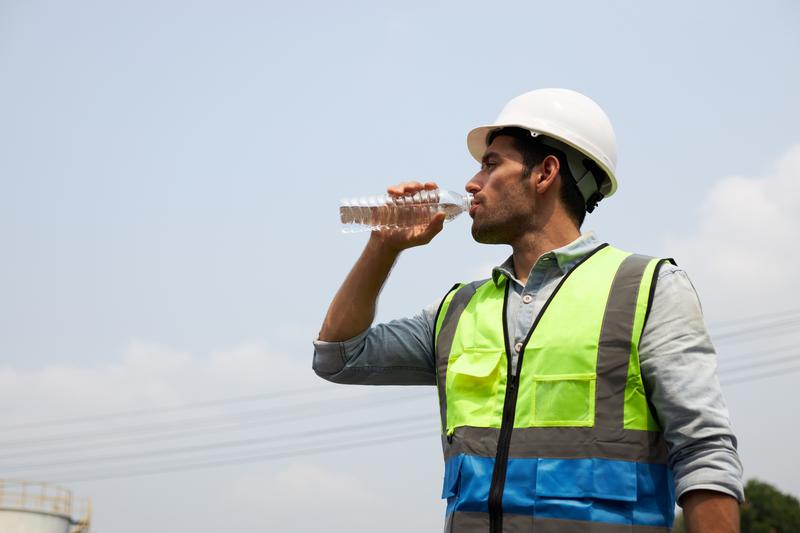This page has been automatically translated. Please refer to the page in French if needed.
Labor regulation
Heat wave risk prevention guide: what obligations for the employer?
Publié le 22 juin 2023 - Mise à jour le 30 juillet 2024 - Directorate for Legal and Administrative Information (Prime Minister)
Renewal of air, provision of fresh water, places of rest... Faced with the risk of heat waves, the Ministry of Labor recalls the employer's obligations to protect the health of its employees.

Ensuring the safety and health of employees is an employer's obligation. It is therefore up to the Commission to take appropriate measures to avoid heat stroke or industrial accidents caused by high temperatures.
General measures
In order to ensure the health and safety of employees in the event of extreme heat, the employer must:
- integrating the risk of high heat into the Single Risk Assessment Document (SRA) ;
- to renew the air in enclosed work rooms;
- make available to employees of thefresh drinking water ;
- to provide employees with means of protection and promote the use of handling aids;
- adapt the preventive measures put into practice to changes in temperature.
Please note
The employer may have the work stopped when it considers that its employees are in danger and that preventive measures are insufficient.
FYI
Facing the heat, the number is green Heatwave info service 0800 06 66 66 (free call from a fixed station in metropolitan France, from 9 am to 7 pm) offers advice and indicates the right reflexes to adopt.
Measures for Red Alertness Level
In case Météo France reports a level of danger of red heatwave Vigilance, specific measures will be used. Therefore, attention should be paid to the information provided by the authorities.
This red Vigiliance level corresponds to an extreme heat wave by its duration, its intensity and its perimeter. This can include drought or problems with the supply of drinking water.
Here, the employer must reassess daily the risks incurred by its employees according to:
- temperature changes;
- the nature of the work to be carried out;
- the state of health of employees.
The employer may also decide toto halt the work when they carry a high physical load.
Measures specific to the construction sector
In the construction and public works sector (construction), heat risks are more present since employees may be in confined or outdoor environments. This implies greater vigilance for the employer.
Thus, it must:
- to make available to employees 3 liters of fresh drinking water at least per day per employee;
- prepare a adapted resting place in extreme heat or to arrange the work site to allow breaks under equivalent safety conditions;
- ensure that personal protective equipment worn by its employees (high-visibility signaling clothing, safety helmets, etc.) and equipment for the protection of machinery are compatible with high temperatures.
It is also possible for the employer to change working hours or postpone the activity.

